Search
Search Results
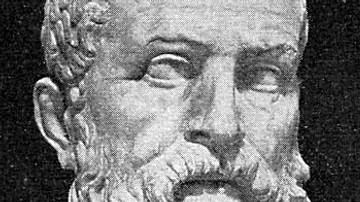
Definition
Solon
Solon (c. 640 – c. 560 BCE) was an Athenian statesman, lawmaker, and poet, who is credited with restructuring the social and political organisation of Athens and thereby laying the foundations for Athenian democracy. Such were his accomplishments...

Definition
Germ Theory
The germ theory, which emerged in the late 19th century, demonstrated that microscopic germs caused most human infectious diseases. The germs involved included bacteria, viruses, fungi, protozoa, and prions. Louis Pasteur (1822-1895), a French...

Definition
Carthaginian Government
The government of Carthage was based on a system of elected officials accountable to a popular assembly. Unlike its founding city, Tyre in Phoenicia, Carthage did not have a monarchy but its politics was dominated by an aristocratic elite...
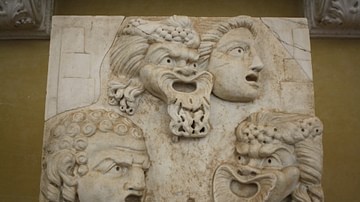
Definition
Aristophanes
Aristophanes (c. 460 - c. 380 BCE) was the most famous writer of Old Comedy plays in ancient Greece and his surviving works are the only examples of that style. His innovative and sometimes rough comedy could also hide more sophisticated...

Definition
Tycho Brahe
Tycho Brahe (1546-1601) was a Danish nobleman who made the most significant contribution to our knowledge of astronomy before the telescope arrived. He discovered a supernova, observed the elliptical interplanetary orbit of a comet, updated...
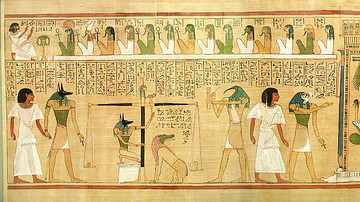
Definition
Burial
Burial of the dead is the act of placing the corpse of a deceased person in a tomb constructed for that purpose or in a grave dug into the earth. Archaeological excavations have revealed Neanderthal graves dating back 130,000 years, marking...
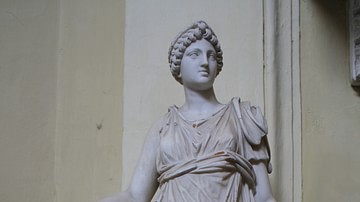
Definition
Ancient Greek Medicine
In ancient Greek medicine illness was initially regarded as a divine punishment and healing as, quite literally, a gift from the gods. However, by the 5th century BCE, there were attempts to identify the material causes for illnesses rather...
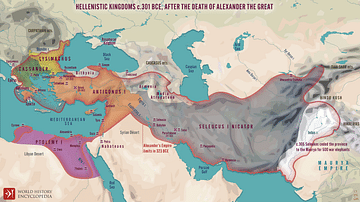
Definition
Hellenistic Period
The Hellenistic Period is a part of the Ancient Period for the European and Near Asian space. The use of this period is justified by the extent of the Hellenic culture in most of these areas, due to the Greek political presence especially...
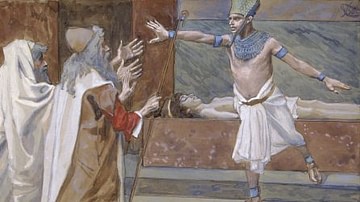
Definition
Ten Plagues of Egypt
The story of the ten plagues of Egypt is found in chapters 7-12 of the Book of Exodus. The story depicts the natural disasters sent by the God of Israel to convince Pharaoh to let the Hebrew slaves leave Egypt. The narrative purpose of the...

Definition
René Descartes
René Descartes (1596-1650) was a French mathematician, natural scientist, and philosopher, best known by the phrase 'Cogito ergo sum' ('I think therefore I am'). He published works on optics, coordinate geometry, physiology, and cosmology...